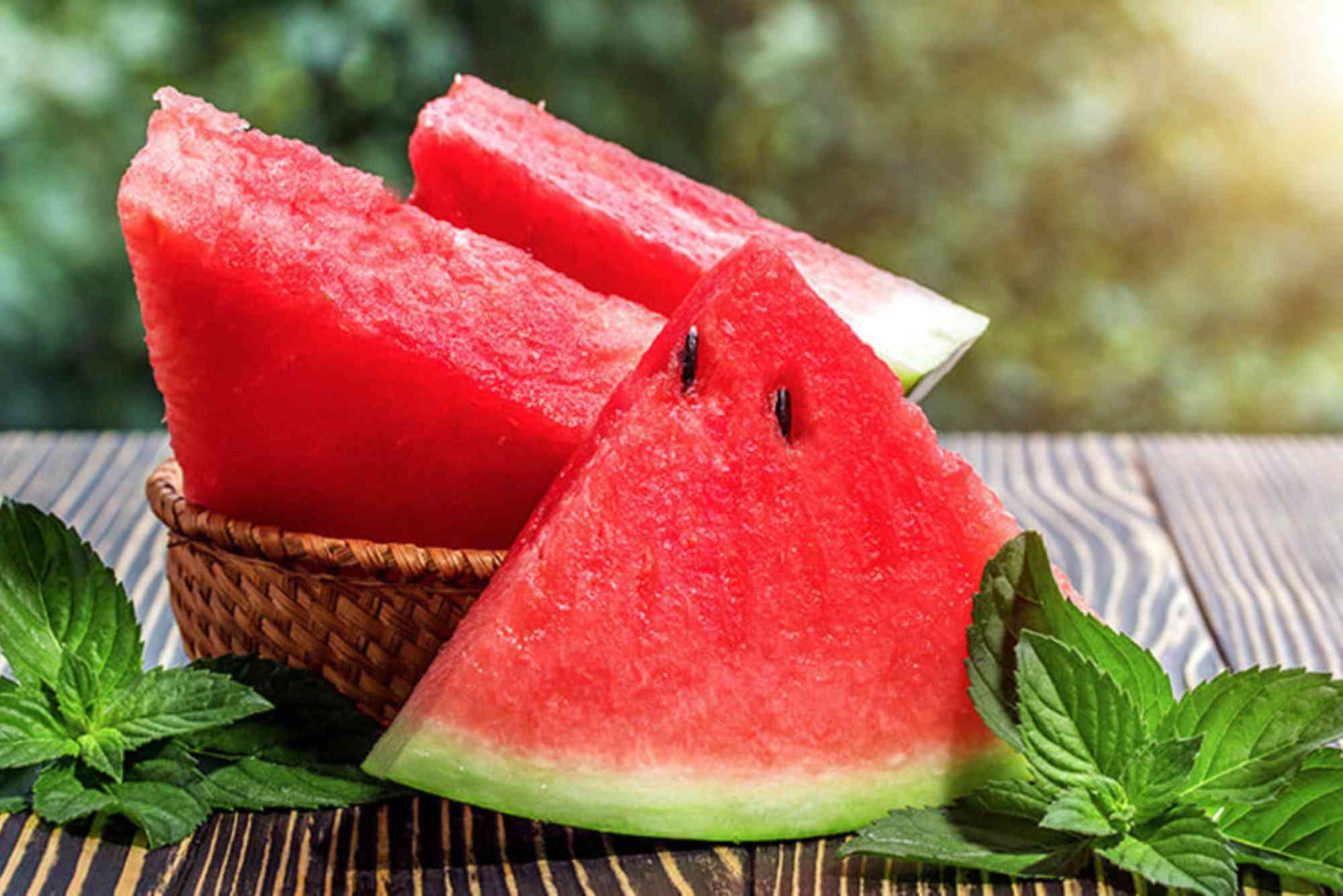Watermelon Nutrition Content: Hydration with a Health Kick
Watermelon, with its vibrant red flesh and refreshing sweetness, is much more than a tasty summertime fruit. It’s a powerhouse of hydration and health, offering a wealth of nutrients in every juicy bite. While most people enjoy watermelon as a cooling treat, few realize its incredible nutritional profile. The nutritional content of watermelon includes essential vitamins, antioxidants, amino acids, and hydration-promoting compounds that make it a smart choice for everyday health.
The Nutritional Makeup of Watermelon
Watermelon is over 90% water, making it one of the most hydrating fruits available. But beyond its high water content, it contains a variety of key nutrients that promote overall health. A one-cup (154g) serving of diced watermelon contains:
- Calories: 46
- Water: 139 grams (about 92%)
- Carbohydrates: 11.6 grams
- Sugars: 9.4 grams
- Fiber: 0.6 grams
- Protein: 0.9 grams
- Fat: 0.2 grams
- Vitamin C: 12.5 mg (21% of Daily Value)
- Vitamin A: 865 IU (17% of Daily Value)
- Potassium: 170 mg
- Magnesium: 15 mg
- Lycopene: 6,890 mcg
These values may vary slightly depending on the variety and ripeness of the watermelon, but overall, it remains a low-calorie, nutrient-rich fruit that supports hydration and energy levels.
Key Vitamins and Minerals in Watermelon
Vitamin C Boosts Immunity and Skin Health
Watermelon is an excellent source of Vitamin C, which plays a vital role in immune function, wound healing, and skin vitality. This antioxidant helps protect the body against damage from free radicals and supports collagen production.
Vitamin A Supports Vision and Cell Growth
Rich in beta-carotene, which the body converts into Vitamin A, watermelon promotes healthy vision, maintains skin integrity, and supports reproductive health. A single cup contributes significantly to your daily Vitamin A needs.
Potassium and Magnesium Balance Fluids and Muscles
Potassium helps regulate fluid balance, nerve signals, and muscle contractions. Magnesium supports muscle health and energy metabolism. The nutritional content of watermelon makes it beneficial for active individuals or those prone to dehydration.
Powerful Phytonutrients and Antioxidants
Lycopene: A Cancer-Fighting Antioxidant
Watermelon is one of the richest natural sources of lycopene, a powerful antioxidant that gives the fruit its red hue. Lycopene is associated with reduced risk of heart disease, certain cancers (especially prostate cancer), and eye disorders.
Citrulline Enhances Circulation
Another standout compound in watermelon is citrulline, an amino acid that may improve blood flow and cardiovascular health. Citrulline is converted into arginine in the body, which helps relax blood vessels and may aid in reducing blood pressure.
Beta-Carotene: Skin and Eye Health
Beta-carotene contributes not only to watermelon’s color but also to antioxidant protection and eye support. Alongside lycopene, it enhances the fruit’s anti-inflammatory and skin-nourishing properties.
Health Benefits of Watermelon
Natural Hydration
With over 90% water content, watermelon is one of the best natural ways to stay hydrated. Proper hydration is critical for maintaining body temperature, delivering nutrients, flushing toxins, and supporting cognitive function.
Supports Heart Health
The combination of citrulline, lycopene, potassium, and magnesium makes watermelon particularly heart-friendly. These nutrients help manage blood pressure, improve circulation, and reduce inflammation—all key factors in cardiovascular health.
Aids in Digestion
Though not high in fiber, watermelon contains a small amount of dietary fiber and a lot of water, both of which support regular bowel movements and digestive ease. It’s gentle on the stomach and suitable for most dietary needs.
Anti-Inflammatory Effects
Thanks to its antioxidants like lycopene and Vitamin C, watermelon may help reduce inflammation throughout the body. Chronic inflammation is linked to many diseases including arthritis, diabetes, and even Alzheimer’s.
Exercise Recovery
Athletes and fitness enthusiasts often turn to watermelon juice for post-workout recovery. Citrulline, combined with natural sugars and electrolytes, helps reduce muscle soreness and speeds up recovery by improving blood flow.
Skin and Hair Health
The presence of vitamins A and C, plus high hydration, supports glowing skin and healthy hair. Vitamin C helps build collagen while Vitamin A aids in skin regeneration. Lycopene protects skin from sun damage.
Is Watermelon Good for Weight Loss?
Yes. Due to its low calorie density and high water content, watermelon can promote satiety without excessive calorie intake. Replacing calorie-rich snacks with watermelon can reduce overall energy intake while still satisfying sweet cravings.
Watermelon also helps combat water retention and bloating, which can contribute to a leaner appearance. While it contains natural sugars, these are balanced with water and nutrients, making it far healthier than processed snacks.
How to Include Watermelon in Your Diet
There are countless ways to enjoy watermelon:
- Eat fresh slices as a snack or dessert
- Blend it into smoothies with mint or cucumber
- Make a watermelon salad with feta, mint, and lime
- Freeze into popsicles for a summer treat
- Use watermelon juice as a refreshing drink or pre-workout beverage
Its versatility and appeal to both children and adults make it a staple in healthy meal planning.
Nutritional Content of Watermelon vs. Other Fruits
When comparing watermelon to other popular fruits like apples, bananas, or grapes, it has fewer calories and more water. For example, a banana has around 105 calories and 27g of carbs, while the same serving of watermelon has only 46 calories and 11.6g of carbs.
Moreover, watermelon’s concentration of lycopene outshines tomatoes in many cases, making it a better source of this potent antioxidant.
Who Should Be Cautious with Watermelon?
While watermelon is safe for most people, those with diabetes should monitor portion sizes due to its glycemic index. Even though it contains natural sugar, eating large quantities at once could spike blood sugar. Also, people with certain kidney disorders may need to moderate potassium intake, in which case portion control with watermelon is advisable.
Watermelon as a Nutrient-Dense Superfruit
From its thirst-quenching properties to its rich blend of vitamins, antioxidants, and amino acids, watermelon stands out as more than just a seasonal fruit. It delivers powerful health benefits with every slice—whether you’re aiming to stay hydrated, boost heart health, aid digestion, or simply enjoy a naturally sweet treat.
The nutritional content of watermelon offers a compelling reason to make it a regular part of your diet. Easy to prepare, delicious, and family-friendly, watermelon can support your wellness goals while keeping you refreshed. Ready to give your health a hydrating kick? Start including watermelon in your weekly meal plan and experience the juicy benefits firsthand.
Frequently Asked Questions
Is it okay to eat watermelon every day?
Yes, watermelon can be enjoyed daily as part of a balanced diet. Its high water content and low calories make it suitable for regular consumption. Just be mindful of portion sizes if you have specific dietary restrictions.
Is watermelon good for hydration?
Absolutely. With over 90% water content, watermelon is one of the most hydrating fruits available. It also supplies electrolytes like potassium, making it ideal for rehydration.
Does watermelon help with weight loss?
Yes. Due to its low calorie count and ability to promote fullness, watermelon can be a great addition to a weight loss diet. It helps reduce cravings while delivering essential nutrients.
What happens if you eat too much watermelon?
Eating too much watermelon may cause bloating or digestive discomfort due to its water and fructose content. In rare cases, overconsumption can lead to high potassium or lycopene levels, which may cause mild side effects.
Is watermelon high in sugar?
Watermelon does contain natural sugars (around 9 grams per cup), but it has a low calorie density and offers hydration and nutrients, making it a healthy choice when consumed in moderation.





